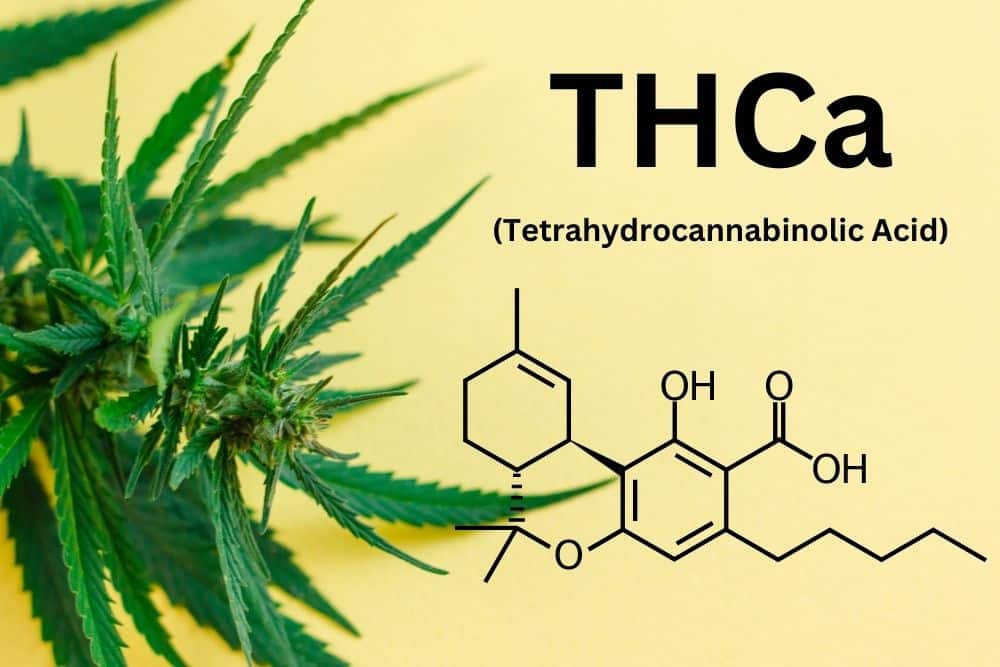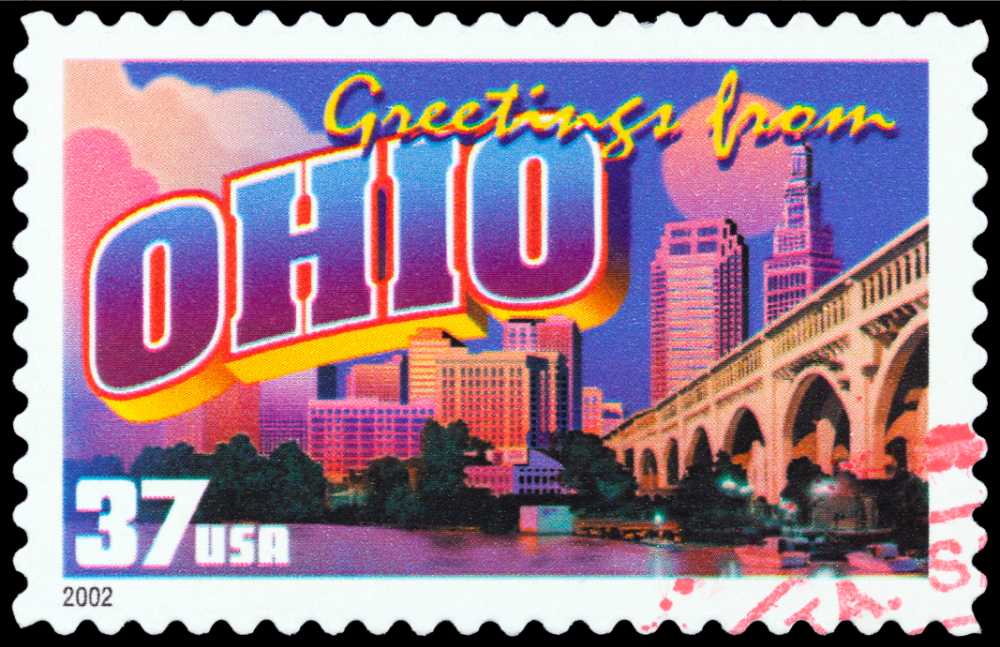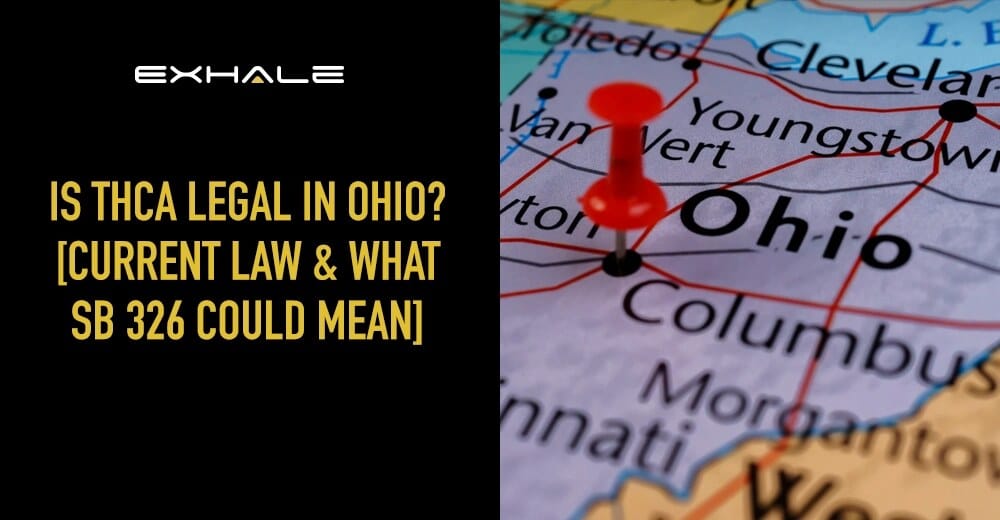Cannabis laws are changing fast across the United States, and Ohio is keeping up with the trend. As more people become interested in cannabis and its many components, questions about what’s legal and what’s not are on the minds of cannabis enthusiasts in The Buckeye State. One of the biggest questions is: Is THCa legal in Ohio? THCa, or Tetrahydrocannabinolic Acid, is a compound found in raw cannabis plants that is gaining attention, and rightly so, for its potential therapeutic benefits and its ability to transform into THC. However, knowing where THCa stands legally in the state can be hard with so many rules and regulations.
This blog will break the law down for you in simple terms. We’ll cover what THCa is, how federal and state laws affect its legality, and what you need to know if you’re thinking about buying or consuming THCa in Ohio. Whether you’re a medical marijuana patient, a curious consumer, or just someone trying to stay informed, this guide will help you navigate the confusing world of cannabis laws. Keep reading to learn about THCa Ohio laws and what it could mean for residents and visitors to the Birthplace of Aviation.
Understanding THCa
THCa, short for Tetrahydrocannabinolic Acid, is a naturally occurring, non-euphoric cannabinoid found in raw cannabis plants. Also abbreviated as THCA, THC-A, and THC-a, the cannabinoid is the acidic precursor to THC (Delta 9 THC, Delta 9, D9 THC, or D9), the world-famous cannabinoid that makes you feel “buzzed.”
Unlike THC, THCa doesn’t produce euphoric effects in its raw form. Instead, THCa is famous for its potential health benefits, like reducing the body’s negative response to bodily stress or providing cognitive support. However, when THCa is heated—like when you smoke, vape, or cook it—it turns into THC, which can make you feel euphoric.

In Ohio, the legal status of THCa is clear; however, it’s also unclear. While hemp products that contain at or less than 0.3% THC are usually legal under federal law, state laws can be different. Recent developments in redefining what constitutes THCa, such as in states like Georgia, have caused confusion. This makes understanding federal and state rules important to avoid legal problems.
This begs the question: is THCa legal in Ohio? Let’s find out below.
Current Status of THCA in Ohio
As of this writing, all hemp-derived THCa products are legal in the state of Ohio, provided that they do not exceed 0.3% Delta 9 THC at the point of sale. Although this may seem straightforward, THCa’s potential to transform into THC puts it in what many consider to be a legal gray area in Ohio.
Hemp-derived THCa products are usually legal in Ohio if they follow federal THC limits for hemp products—0.3% or less. This means THCa products, like raw THCa hemp flower and THCa tinctures, must follow strict rules to stay legal.

The legality of THCa in Ohio is anything but clear-cut, with much of it being nuanced—especially regarding how THCa is used and what it ultimately converts into. For example, THCa flower in Ohio with 0.3% THC or less is legal, but if it’s sold to be smoked or heated, it could cause legal issues. The cannabis industry in Ohio is still growing, and future laws could make THCa’s legal status clearer—or more complicated.
The status of THCa in Ohio will likely depend on new research, public opinion, and changes in cannabis laws. As more people learn about THCa’s potential benefits, lawmakers may be pressured to create clearer rules. But, as of now, THCa fans in Ohio can legally purchase and consume THCa products as long as they are hemp-derived and contain no more than 0.3% THC at the point of sale.
Federal And State Laws Regarding THCa
At the federal level, the 2018 Farm Bill made hemp and hemp products legal as long as they do not contain more than 0.3% THC by weight. Since THCa is non-euphoric, comes from hemp, and is in products that do not contain more than 0.3% THC at the point of sale, it’s usually considered legal under federal law.
But state laws can be different, especially when it comes to defining what constitutes THCa. As we previously mentioned, Georgia has redefined its THCa laws; the updated law now clearly includes THCa within the definition of THC.
Ohio law permits medical marijuana for people with a valid medical marijuana card. Voters also legalized recreational marijuana in 2023. This creates a tricky situation for THCa because it can turn into THC when heated. If a THCa product has too much THC, it could be considered marijuana under both federal and Ohio law.
The main difference between federal and state laws is how they handle THCa’s ability to turn into THC. Federal law looks at the THC level when the product is tested, but Ohio might consider the possibility of THCa becoming euphoric. This can lead to confusion and legal risks for both buyers and sellers.

Factors Impacting the Legality of THCa
Several things impact whether THCa is legal in Ohio, including state rules, federal laws, and public opinion. State rules are important because they decide what kinds of THCa products are allowed and how they can be sold. For example, Ohio’s medical marijuana program has strict rules about who can use it, how products are tested, and how they’re distributed. These rules can affect the availability of THCa products as well.
Federal laws also play a big role. The 2018 Farm Bill set the rules for hemp products, but states can make stricter laws. When federal and state laws don’t match, this can create confusion, especially for THCa, which can turn into THC.
Public opinion and medical research are also important. As more studies show the possible wellness potential of THCa, more people may want access to these products. At the same time, concerns about THCa turning into THC could lead to stricter rules.
Finally, how THCa products are made and sold matters a lot. Reputable sellers must follow strict testing and labeling rules to ensure their products are safe and legal. This protects buyers and helps keep the cannabis industry trustworthy.
Purchasing THCa in Ohio: What To Know
If you’re thinking about buying THCa products in Ohio, there are a few things to keep in mind. First, make sure you buy from reputable sellers who follow the law and sell high-quality products. Your best options are licensed dispensaries and trusted online stores that sell hemp plant products.
When shopping for THCa, check the product’s THC level to make sure it meets federal and state rules. Look for third-party lab test results that show what’s in the product and its strength. Also, consider the form of THCa you’re buying—like raw hemp flower, tinctures, or edibles—and how you plan to use it.
Understanding shipping and distribution laws is important, especially if you’re buying THCa online. While hemp products are usually legal to ship across state lines, make sure the seller follows Ohio’s rules. Finally, stay current on THCa’s legal status in Ohio, as laws can change quickly.
Future of THCa in Ohio: What Could Change?
The future of THCa in Ohio is uncertain but could go in many directions. As the cannabis industry grows, more people might learn about THCa’s benefits. This could lead to changes in the law, like making medical cannabis easier to access or even legalizing recreational marijuana.
New laws could also clarify THCa’s legal status, helping buyers and sellers understand the rules better. Plus, more medical research might show even more benefits of THCA, which could increase demand for these products.
The Ohio Board of Pharmacy has implied that hemp products containing THCa that can be converted into THC are considered potentially unlawful, regardless of their source. Additionally, recent legislative efforts are pushing to regulate euphoric hemp products more strictly. While THCa itself is non-euphoric, lawmakers are attempting to categorize it alongside intoxicating cannabinoids.
In November 2024, Senate Bill 326 (SB 326) was introduced to define and potentially ban “intoxicating hemp products,” including those with certain levels of THC and its analogs, such as THCa. SB 326 is currently stuck in committee, and it may be some time before it’s brought to the floor for debate.
Given the rapidly changing legal landscape, it’s recommended to check the latest state regulations or consult legal counsel before purchasing or possessing THCa products in Ohio.
Ultimately, the future of THCa in Ohio will depend on public opinion, new scientific discoveries, and political decisions. As the conversation about cannabis continues, it’s important to stay informed and support laws that focus on safety, access, and innovation.
THCa Consumption Methods: Legal Implications in Ohio
How you choose to use THCa can have a big impact on its legality in Ohio. Since THCa is non-euphoric in its raw form but can turn into THC when heated, the method of consumption matters a lot. Here’s a breakdown of the most common ways to consume THCa and how they might affect its legal status:
Smoking or Vaping THCa
Smoking or vaping THCa flower is one of the most popular methods, but it also may be risky in Ohio. When you heat THCa, it converts into THC, which can produce euphoric effects. If the THC level exceeds the legal limit of 0.3%, it could potentially be considered a controlled substance under Ohio law. This means smoking or vaping THCa could lead to potential legal complications, especially if the product isn’t from a licensed retailer or doesn’t meet state guidelines.
Edibles and Tinctures
THCa edibles and tinctures are another common way to consume this compound. These products are often made by infusing THCa into oils, gummies, or other foods. Edibles offer the wellness benefits of THCa without the euphoria. However, THCa gummies may be blended with other cannabinoids that can induce a euphoric effect.
While they’re generally considered safer from a legal standpoint, it’s still important to check the THC content. If the product contains more than 0.3% THC, it could be illegal in Ohio. Always look for third-party lab test results to ensure the product complies with state and federal laws.
Raw THCa Consumption
Consuming THCa in its raw form—like adding raw cannabis leaves to a cold smoothie or using THCa tinctures—is the least likely to cause legal issues. Since raw THCa doesn’t convert to THC or produce euphoric effects, it’s generally considered legal under federal and state hemp laws. However, it’s still crucial to buy from reputable sources to ensure the product meets legal THC limits.

Exhale Wellness: The Best Place To Buy THCa Online
Looking for premium THCa flower, Ohio residents? If you’re looking for high-quality, legally compliant THCa products, check out Exhale Wellness. We offer a wide variety of hemp-derived products, including THCa flower, tinctures, and edibles, all tested to meet federal and state guidelines.
Whether you’re new to THCa or a seasoned connoisseur, Exhale Wellness ensures you get the best products while staying within the law. Visit our THCa shop today to explore our selection and make informed, safe choices for your THCa journey!
FAQs About THCa Legality in Ohio
What Happens When THCa Is Heated?
When THCa is heated—like when you smoke, vape, or cook it—it goes through a process called decarboxylation. This turns THCa into THC, the compound that makes you feel buzzed. In its raw form, THCa doesn’t have euphoric effects, but once heated, it can produce the same effects as THC. This is why the way you use THCa matters, especially when it comes to legality.
How Do State and Federal Regulations Differ for THCa?
Federal law, per the 2018 Farm Bill, allows hemp-derived products like THCa as long as they contain at or less than 0.3% THC. However, state laws can be stricter. In Ohio, THCa is in a gray area because it can turn into THC when heated. While federal law looks at the THC level at the time of testing, Ohio might consider the potential for THCa to become euphoric. This difference can make THCa’s legal status confusing, depending on how it’s used or sold.
Is Medical Marijuana and Recreational Marijuana Legal in Ohio?
As of today, both medical and recreational marijuana are legal in the state of Ohio. Medical marijuana is legal for people with a valid medical marijuana card and a qualifying condition, like chronic discomfort.
Are There Any Penalties for Possessing THCa in Ohio?
Yes, there can be penalties if you have THCa products that don’t follow Ohio’s laws. For example, if a THCa product has more than 0.3% THC, it could be considered illegal. Possessing or consuming THCa in ways that break Ohio’s cannabis laws could lead to fines or other legal consequences. Always make sure the THCa products you buy follow state and federal guidelines to avoid problems.
How Can Ohio Residents Stay Informed About THCa Regulations?
Ohio residents can stay informed about THCa laws by checking reliable sources like government websites, trusted industry news outlets, and subscribing to newsletters from reputable brands like Exhale Wellness. Following updates from Ohio’s Medical Marijuana Control Program or other state offices and organizations that focus on cannabis laws can also help. If you’re unsure about a product’s legality, ask the seller for lab test results or consult a legal expert.
Final Thoughts – Is THCa Legal in Ohio? [The Truth About Current Law & SB 326]
Good news, Ohio residents—hemp-derived THCa products are legal in the state of Ohio as long as they contain 0.3% or less THC at the time of sale. The legal landscape of THCa in Ohio is nuanced and always changing. While hemp-derived THCa products are usually legal under federal law, Ohio’s cannabis laws add extra layers of confusion. To stay safe, buy THCa from licensed sellers, check product quality, and keep up with the latest laws.
As the cannabis industry grows, the future of THCa in Ohio is uncertain but full of possibilities. By following the rules and making smart choices, you can explore THCa’s benefits while avoiding legal problems. Whether you’re a medical patient or just curious about cannabis, knowing the laws is key to making good decisions. Looking for premium, federally legal THCa, Ohio residents? Shop our THCa selection today and experience top-tier quality you can trust!
Editor’s Note: The information provided on this site is intended solely for general knowledge and should not be interpreted as legal advice or a comprehensive review of current laws. We do not guarantee the accuracy or dependability of the legal details shared here, nor is it designed to influence decisions regarding our products. Laws differ across states and are subject to frequent updates, which means the content may not always reflect the most current legal standards. To ensure compliance, we encourage consulting a qualified attorney in your area or the location where you plan to ship products.





